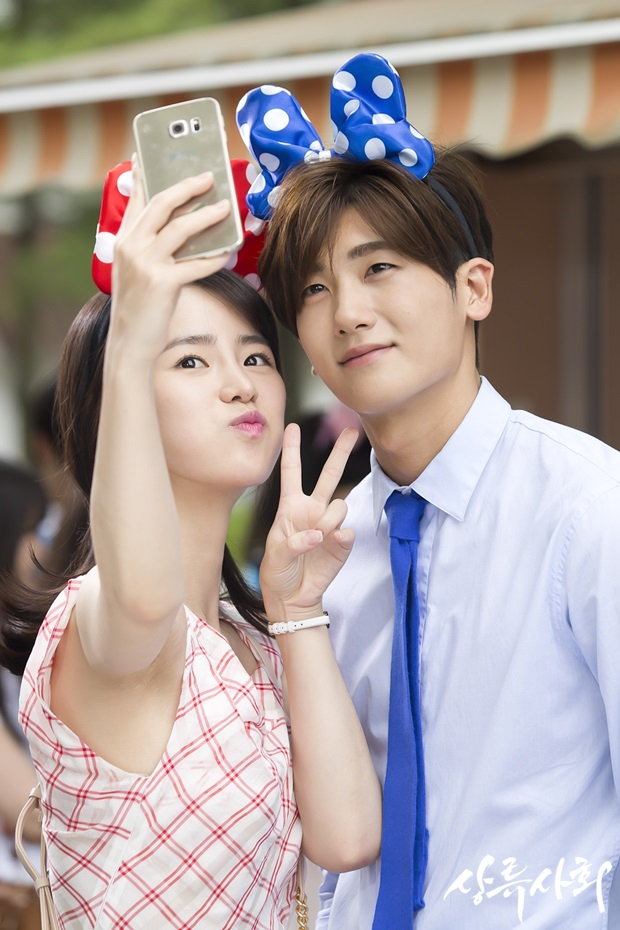What it means to be a relationship virgin in South Korea
A woman in her thirties living in Seoul, revealed online a secret that she has vowed to conceal at all costs until her death: that she is a “motae solo.”
This Korean slang phrase, often abbreviated as “mossol,” refers to those who have never been in a relationship, with “motae” meaning a mother’s womb in Korean and “solo” meaning alone. So, to translate literally, it means “single since birth.”
Coming out as a mossol can be very tough in South Korea, where being in a relationship is considered the norm.
“‘Is there something wrong with them?’ is the first thing that comes to people’s minds when someone comes out as a mossol,” a 24-year-old recent college graduate surnamed Yoo said on the condition of anonymity, as she explains the general view towards such relationship virgins among her peers.
“People are more understanding for example if a guy in his early twenties has never been in a relationship before if they just got out of high school. But if a 30-year-old has never had a girlfriend, that is a red flag for many women,” Yoo added.
Article continues after this advertisementDue to the widespread assumptions that their absence of romantic experiences largely stems from their unattractiveness, most mossols are reluctant to admit their mossol status.
Article continues after this advertisementAnd when they do, it is often in an online space where they can remain anonymous.
“I have overheard so many people say that there is something fundamentally wrong with women who have been single until they reach their thirties,” wrote a woman in her thirties on an online community as she anonymously admitted to being a mossol.
“So when people ask me if I am seeing anybody, I just lie to them that I am. Because I have lied so many times, at this point, I have almost convinced myself that I am not a mossol.”
Meanwhile, another woman posted, “I am already in my mid-twenties and I still haven’t dated anyone. Am I abnormal?”
Questions such as the one above are easily found in an online community, reflecting widespread concerns about being a mossol in South Korea.
No room for singles?
“Everyone not in love now are guilty,” is the title of a collection of essays by Korea’s top screenwriter, Noh Hee-kyung.
This title could not be more true in Korea which has a vibrant dating culture.
For example, when many young couples start their relationship, they often publicly express it by wearing matching couple items such as couple T-shirts and bracelets.
On Instagram, many couples would post pictures with the hashtag, ‘’lovestagram’ – a combination of the word “love” and “Instagram” used by Instagram users to express affection for their lover.
Indeed, a search for hashtag “lovestagram” on Instagram immediately returns thousands of photos of couples showing affection for one another wearing matching couple T-shirts.
It is also customary for couples to mark their love milestones, with many counting down the days and celebrating their 100th day anniversary since they got together.
In fact, on KakaoTalk, the most common messaging app for Koreans, it is easy to spot users who display the number of days they have been together with someone on their personal profile page.

This scene from the drama, “High Society,” shows a couple with matching hairbands taking photos during a date in an amusement park (SBS)
From matching couple items (i.e., couple T-shirts, bracelets) to lovestagrams, and the frenzy for celebrating love milestones, the country speaks of love everywhere.
In such a climate, being a mossol or single can feel isolating.
“I was under a lot of pressure to date back in college because it felt like I was falling behind others if I didn’t get a boyfriend,” Lee So-young, a woman in her mid-twenties recalled.
However, the irony was that while dating is highly expected of the youth, it is strongly frowned upon when it concerns teenagers. In a country that highly values academic achievements, many South Korean teens are warned against dating by their parents and teachers as they believe it hampers academic progress.
“Back in high school, I was told to be a good student, which meant I had to focus solely on my studies and absolutely no dating with members of the opposite sex,” Lee added.
“But as soon as I got into college, everybody including my relatives and friends started asking me if I was seeing anyone.”
As Lee has never learnt to interact with the member of opposite sex, it was difficult for her to adjust to this sudden transition.
“Dating was a taboo as a teenager but all of a sudden, I was being pressured to date,” she said.
Changing norms about dating
The latest survey conducted by the local media MBC, however, shows a high proportion of singles and mossol among youth.
A full 42.6 percent of 594 unmarried men and women were not engaged in romantic relationships, while over 21 percent of them reported never having had any dating experiences, which translates into 1 mossol out of every 5 people.
The most cited economic concerns as their reasons for not dating.
As more people embrace single life and there is a rising proportion of individuals identifying as mossol, slowly, a view is emerging that being a mossol is a matter of choice.
